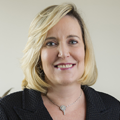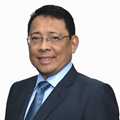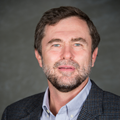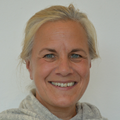Capacity Development: Building Institutions and Beyond
IMF SEMINAR EVENT
DATE: April 10, 2019
DAY: Wednesday
10:00 AM - 11:00 AM
LOCATION: IMF HQ1 Meetings Hall A B
Overview
The seminar will explore the challenges and hard choices involved in developing institutional capacity. Strengthening state institutions, such as central banks and finance ministries, can contribute to economic stability and growth, but often requires a coherent change-management reform agenda and strong political leadership. What does “building institutions” really mean for those who implement changes on the ground? What can countries and development partners do to strengthen institutions? How can capacity-development efforts become more conducive to sustainable development?
*French interpretation will be provided for this event
Join the conversation via #IMFcapdev
Capacity Development: Building Institutions and Beyond
Panelists


Diwa C. Guinigundo has been Deputy Governor of the Bangko Sentral ng Pilipinas since 2005. He was previously Assistant Governor in charge of monetary policy and international operations. During 2001–2003, Mr. Guinigundo served as Alternate Executive Director at the International Monetary Fund. He was also Head of Research at The SEACEN (Southeast Asian Central Banks) Centre (1992–1994).
Mr. Guinigundo chaired and co-chaired various committees and groups, including the SEACEN Experts Group on Capital Flows, the ASEAN Senior Level Committee on Financial Integration, and the EMEAP’s (Executive Meeting of East Asia and the Pacific) Monetary and Financial Stability Committee of central bank deputies. He graduated, cum laude, from the University of the Philippines and holds a M.Sc. in Economics from the London School of Economics.



Cecilia Scharp is currently Assistant Director General at the Swedish International Development Cooperation Agency (Sida) heading the Department for International Organisations and Policy Support since mid-August 2017. She left UNICEF New York in 2017 after five years at the WASH section where she was leading UNICEFs work on water and environment issues. Cecilia led the global consultation to develop SDG 6 on water and sanitation for UN-Water and was engaged throughout the process. Before leaving for UNICEF she held various positions at Sida and the Ministry of Foreign Affairs most recent as Assistant Director at Sida’s department for countries where Sweden is engaged in long term collaboration (PROGSAM) and as Head for Sweden’s development collaboration in Liberia. Cecilia has a MSc in civil engineering and holds a PhD in Land and Water Management from the Royal Institute of Technology in Sweden.



